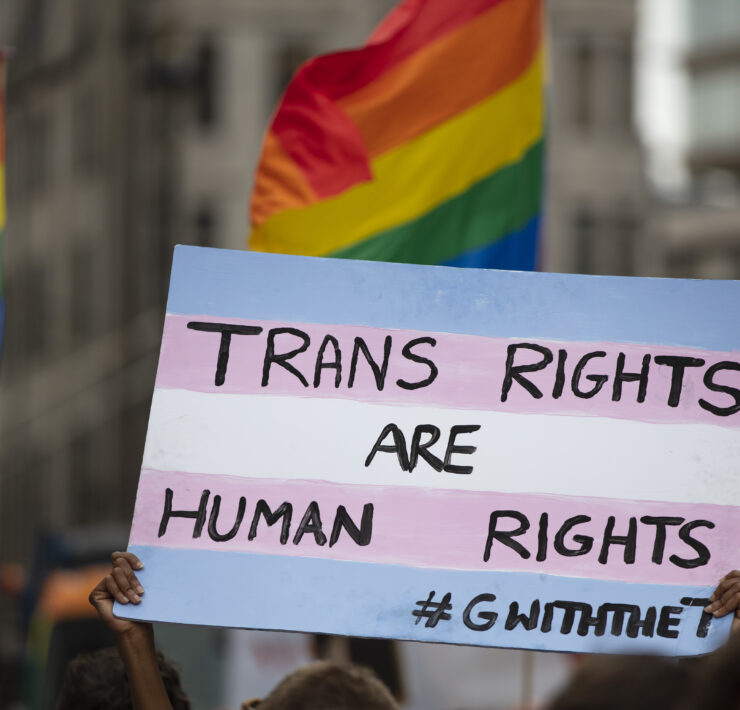Civil union fight, advances in LGBT rights took Colorado community to the ‘Edge of Glory’ in 2011

Decades from now, when historians look back on the LGBT movement, they’ll no doubt look to 2011 as the year everything began to come together. On a national level, Don’t Ask Don’t Tell was repealed, New York extended marriage benefits to same-sex couples and anti-gay bullying shifted from being the status-quo to taboo. Colorado is no different. The year 2011 will be one for the books. While the year ends with unfinished business, we take ause to examine all that was accomplished, and how we arrived at the edge of glory.
Here are the top 10 stories of 2011.

1. Civil union bill passes Senate, falls short in House
The adage goes, “Close only counts in the game Horse Shoes and hand grenades.” This proverb rang true again March 31 when the Colorado Republican House Judiciary Committee killed a bill that would have established civil unions in Colorado. The 5-4 party-line vote left hundreds, thousands of supporters disappointed. The bill, sponsored by gay Denver Democrats Sen. Pat Steadman and Rep. Mark Ferrandino, had not only cleared the Senate, but learned it with bipartisan support. And it was deeply believed that if the legislation had survived the committee vote it would have had enough votes on the House floor to pass. While the battle may have been lost at the hands of Republican leadership, proponents of the civil union legislation have every intention of winning the war.
2. Sujey Pando, Denver lesbian, spared deportation, for now

We’ve known for a while now that the federal Defense of Marriage Act has discriminated against same-sex couples since it was conceived. But in 2011, it was never clearer that some couples are forced to live in the shadows because of the discriminatory policy. Binational couples like Sujey and Violetta Pando live in a world that at any moment they can be torn apart because one-half is not a United State’s citizen. The Pando’s faced this reality Aug. 19, but new immigration policies issued by the Obama administration, the Pando’s keen lawyer Lavi Soloway and a judge unwilling to rule with so much influx, spared the couple for now. The Pandos and Soloway will be back in court in January. Meanwhile, an attempt to repeal DOMA is underway in the Senate, but the chance of passage is unlikely.
3. Don’t Ask Don’t Tell repealed, Denver celebrates
While the legislation allowing President Barack Obama to repeal Don’t Ask Don’t Tell was passed in late 2010, the actual repeal didn’t happen until late 2011. While the first day of serving openly was Sept. 20 – 30 days after Obama signed the order to allow gays and lesbians to enlist – Denver veterans, as well as active duty men and women, started celebrating in June at PrideFest when an LGBT color guard led the parade. Moreover, celebrations were held in September at both X Bar and Charlie’s. The aforementioned color guard also marched in the November Veteran’s Day Parade.
4. Colorado’s AIDS Projects merge
A conversation that started four years ago came to fruition in 2011. In an effort to “enhance access to resources not available to the state’s smaller HIV/AIDS nonprofits, four of the five Colorado AIDS Projects merged Oct. 14. Only the Boulder County AIDS Project abstained from the merger. The new statewide Colorado AIDS Project will be made up of the Southern Colorado AIDS Project, Northern Colorado AIDS Project, Western Colorado AIDS Project and the Denver-based Colorado AIDS Project. The new statewide entity will be based in Denver with Ruth Pederson serving as interim director. “There’s been a lot of thoughtful due diligence throughout the process and the cooperation has been incredible,” said Jeff Basinger, executive director of NCAP. He hailed the merger as an opportunity to expand services.

5. Gays take over Colorado’s Democratic party
GOP is the acronym most commonly associated for the Republican Party. It stands for “Grand Old Party.” Here in Colorado, Democrats might be able to repurpose the letters for themselves: Gay Old Party. That’s because three of the most important Democrats in the Centennial State are gay. First, there’s Tim Gill, the millionaire financier for progressive causes. But that’s old news. In 2011, Democrats elected Rick Palacio as their party’s chairman March 5 and House Democrats appointed Mark Ferrandino Nov. 18 as their new minority leader. Palacio, a Pueblo native, was previously chief of staff for Democratic U.S. Rep. Steny Hoyer. He became the only the second out gay man to lead a major political state party. And Ferrandino, who had extraordinary clout on the state’s Joint Budget Committee, is poised to be the first openly gay speaker of the House if this gay trio can return Democrats to power. Republicans currently have a one-vote advantage in the House, 33-32.
6. Census data shows more same-sex couples living in Colorado
Census data released almost three months to the day after a bill that would have established civil unions for Colorado same-sex couples was killed by the state House Judiciary Committee showed the number of gays and lesbians partners had grown by 60 percent in the last decade. The number of new self-reporting same-sex couples grew three times the rate of all other households in the state, analysis by Out Front Colorado and I-News, a Colorado-based nonprofit journalism collaborate showed. Moreover, the data showed that same-sex couples were living in 63 of the Colorado’s 65 counties and that one in every eight households was a gay couple. According to data from the American Community Survey released by the Williams Institute during the civil union debate in Colorado estimated there were 12,558 same-sex couples. That same study estimated about 3,500 of those couples would apply for civil unions. However, Republicans didn’t put much stock in that report. Now, with a fixed number – 16,114 couples, 3,690 of them raising children – backed by the Census, the number of couples likely to apply for civil unions is sure to increase, and the case for civil unions redoubled.
7. School bully bill passes
One of the most surprising bills to get out of the Colorado General Assembly in 2011 was Reps. Sue Schafer and Kevin Priola’s school bullying bill. Schafer, a lesbian and a Democrat, partnered with Priola a straight Republican, to update the state’s definition of bullying and set in place programs to combat schoolyard bullying. The bill cleared the Republican House of Representatives with bipartisan support in March, just weeks before the same chamber killed a bill that would have established civil unions. Onlookers believed one of the reasons why the bill didn’t face more opposition was because the bill didn’t allocate any money from the state’s budget. Instead, a legislative task force will be set up to establish a study on bullying and create a fund for schools to initiate bullying prevention.
Moreover, the bill updated bullying to include online and mobile bullying. The bill was introduced after national attention was focused on anti-LGBT bullying. A string of gay suicides gripped the nation in late 2010.
8. Robin Kniech, Deb Johnson elected in Denver

2011 was the year of the lesbian in Denver politics. Two out lesbians were elected to high offices within the Denver government. First, Robin Kniech took an at-large city council seat without the need of a runoff. Then, Debra Johnson clinched the clerk and recorders office in June. The two women were sworn in along side Denver’s new mayor Michael Hancock July 18. And while the two women made history and local headlines, Johnson’s status was later elevated when she took on – and won – a legal battle against Colorado’s Secretary of State Scott Gessler on voting rights for inactive voters. Johnson wanted to mail ballots to inactive voters, while Gessler thought it was a waste of money.
9. Denver wins bid to host North American Out Games
Get your training shoes on, Gay Denver. Before you know it, the North American Out Games will be in your backyard. After weeks and months of planning, bidding and a little bit of schmoozing, the Gay and Lesbian International Sports Association awarded the 2015 Out Games to the Mile High City. Sure, it was the lone finalist. But it was never a sure win, organizers said. So, what does this all mean for Denver? Not only will the city be recognized, but the LGBT community will be highlighted across the globe. Oh, and the residual effects aren’t bad either: thousands of hot LGBT athletes and a million dollar boost to the local economy.
10. Gay bars open, close
The Denver gay bar scene changed radically in 2011. Three long-standing bars closed while two new watering holes opened and another rebooted in hopes of attracting a new crowd. First, BJ’s, one of the first bars to open after the gay community came together to fight police brutality shuttered its doors July 30. Owner Bob Engle had been attempting to sell the bar for several years and finally found a buyer this year. Later tHERe owner, Jody B. left the bar business Nov. 1. New owner, Alex Degelman, has transformed the Colfax Avenue lesbian bar into a whiskey bar for the entire LGBT community. Perhaps most shockingly, Jr.’s, the iconic 17th Avenue bar, closed after the East Coast owners were unable to negotiate a lease with the buildings landlord. The rumors that plagued the bar since 2008 had finally come true. Meanwhile, in Five Points, the Tracks family has once again breathed life into the bar at 31st and Downing. This time as eden, a women’s bar. Will it last or go the way of Swallows and Kiva before it? We’ll find out in 2012.
What's Your Reaction?
Founded in 1976, Out Front is the largest LGBTQ news organization in the Rocky Mountains. "Like" Out Front on Facebook: facebook.com/outfrontcolorado, and follow us on Twitter: @outfrontco.










